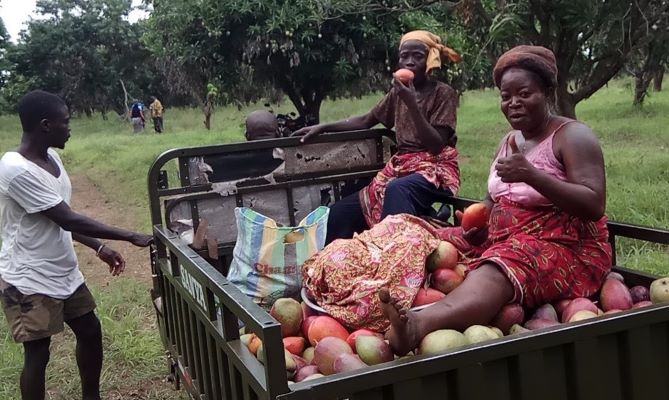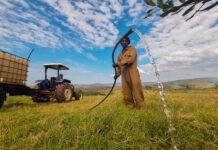MALTHUS; WE CAN’T KEEP ON FEEDING THE GROWING WORLD POPULATION!
The need and difficulty of feeding the world population are growing year by year. Thomas Robert Malthus predicted in 1798 that the world’s population would grow so fast that we wouldn’t be able to produce enough food.
In the 21st Century, food availability is still on the international agenda; hence, the Nobel Committee awarded the 2020 Peace Nobel Prize to the United Nations on its World Food Program.
FOOD PRODUCTION IS MORE CHALLENGING THAN EVER
Two hundred years later, in the 21st Century, people have greater expectations as to the availability and amount of food served on their table and how it is produced.
Quantity of food is no longer the sole or even the main feature to measure a food production industry’s success.
Current requirements and expectations of the public from food producers are expressed in the UN SDGs (Sustainable Development Goals). They include components representing how we relate to food security, climate impacts, public and environmental health, and social values.
CURRENTLY, WE FEED HUMANITY ON THE EXPENSE OF HUMAN HEALTH
I grew up on a kibbutz in Israel, where I was also responsible for Crop Protection in the Conventional and the Organic orchards.
The leading perception regarding the above farming regimes is that “Conventional agriculture is aimed to feed the world” while “Organic agriculture is suitable if we want to eat healthy food.”
The underlying meaning of that is that food grown under the Conventional regime is unhealthy, while the Organic regime is unfit to provide the immense mass of food we need to feed the world.
Every time we go shopping, we ask ourselves, “what should I buy, the costly healthy Organic produce, or low-cost, less healthy Conventional produce?”
We end-up with what we can afford and buy for our family the Conventional lower-cost produce.
Yes, now it is clear that Organic farming cannot supply all the food we need, and Conventional farming is not sustainable, not eco-friendly, and not healthy as we would like it to be.
We learn to accept the reality as it is and to come to terms with the above limitations.
REDEFINING THE QUESTION
Are we doomed to choose between Enough Food under Conventional farming to Healthy Food under Organic farming?
Being
a farmer, I wondered what kind of agriculture I should elevate and run, and
what values do the fruits I sell represent?
I gave it a long thought before concluding that this is not the right question.
I then rephrased the question to suit modern demands and needs –
“How do I meet the demand for food alongside with having it healthier and safer for consumers and the environment?”
Now it became clear that we could and therefore should bridge the gaps between Conventional and Organic farming.
The question is, HOW!
HOW do we combine the best of Conventional and Organic farming to feed the world population with healthy food in sufficient quantity, while keeping the environment safe and sound?
BIOFEED, A SOLUTION PLATFORM FOR GLOBAL PROBLEMS
That issue of “HOW” we can close the gaps between Quality and Quantity led me to establish in 2004 the Biofeed Company.
Hence, Biofeed set its Target: ”To develop novel non-spraying crop protection technologies and protocols” and our Mission: “To Enable consumers to enjoy better and healthier food and life, while growing produce in a safe, eco-friendly environment, and improving farmers’ livelihood.”
Ultimately, our Goal is to take part in creating “A world where people enjoy longer and healthier lives, consume healthy food, grown in a healthy and sound environment.”
To fulfill its aspirations, Biofeed decided on focusing on creating non-spraying pest control solutions to the most problematic groups of fruit and vegetable pests, and in the most problematic crops and places.
We focused on the most complex but worthy challenge of developing a non-spraying solution to enable perfect management of the most challenging fruit pests’ in the whole wide world – the FRUIT FLIES.
Soon we realized that if we could do it with fruit flies, we could do it with any other pest!

Fruit flies are recognized as the most problematic fruit pests, causing Africa and Asia (despite endless sprays) 50%-80% fruit loss.
Fifty to eighty percent fruit loss and we wonder why there is food shortage!?
In some countries, the severity of the problem is so extreme that farmers stopped growing crops susceptible to fruit flies.
The extent of the fruit fly damage manifests in the mango industry, resulting from the areas where mangoes are most abundant, and people need the food and income the most.
Due to the high fruit fly infestation, mango export from most African and Asian countries dropped nearly zero! The direct result of that situation is a food shortage, lower farmers’ income, and governments’ necessity to support farmers.
Some West African countries prevailed the harsh impact of fruit flies and managed to keep fresh mango export to Europe’s premium markets.

It took Biofeed many years to develop a fruit fly management technology, methodology, and protocol that would meet its stringent requirements.
Biofeed tested the effectiveness of its Green Valley model solution (technology, methodology, and protocol) in three continents, 30 different fruits and vegetable crops, hundreds of varieties, vary climate conditions (from deserts to the tropics), and challenging it with the most terrorizing fruit fly species in Africa and Asia; Bactrocera dorsalis, Bactrocera zonata, Ceratitis capitata, Ceratitis cosyra.
A BREAKTHROUGH
It took time to come up with the best combination of cost-effective and user-friendly solution.
Finally, we got the right combination and received a consistent 90% to 99.9% reduction in fruit infestations (versus Conventional orchards), with a 100% reduction in fruit fly sprays.
Yes, NOW increasing food production without the downsides of sprays is POSSIBLE!
Yes, NOW zero sprays in the field and zero chemical residues in the produce are POSSIBLE!
Yes, NOW achieving it all within a single season is POSSIBLE!
Yes, NOW zero environmental impact is POSSIBLE!
Being able to effectively control fruit flies without the downsides of sprays and harmful chemicals enables farmers to grow much more, earn more, and even increase export.
The MANGO – FRUIT FLY MODEL, which we call the Green Valley model, is a significant achievement.
Keeping in mind that the Green Valley is a model, we can take it as a proof and an example that crop protection is far better when using non-spraying techniques.
Finally, there are clear answers to the question I have raised, as a farmer, (the same question many people ask in the 21st Century), “How do we meet the demand for food alongside with having it healthier and safer for consumers and the environment?”
It is possible, it is doable, it is available, and it can be extended to other pests and crops. The world changed – we can act differently and get desired results.
Many believe that we must choose one of the two; ‘more food’ or ‘healthy, eco-friendly food.’
Contrary to that belief, the Green Valley model demonstrates how, simultaneously, we can have more and healthier food, grown in an eco-friendly manner. At last, there is no need to compromise.
Applying the Green Valley model in the emerging markets will also help in the global fight against poverty.
YES, WE CAN FEED HUMANITY AND IMPROVE GLOBAL HEALTH (PEOPLES’ & ENVIRONMENTAL)
Since the development of the modern agrochemical industry, about a hundred years ago, we were facing two farming choices, two categories; Conventional or Organic.
Well, we didn’t feel good about either, since whichever category we chose, we had to compromise substantially.
The Green Valley model offers a new, fresh category that is well suited for the 21st Century demands and requirements.
The Green Valley category combines both worlds; the high yield and visual qualities typical to Conventional agriculture with health and environmental awareness, which represents Organic agriculture.
Consumers no longer need to choose between having Conventional fresh fruits at a reasonable price or healthier Organic fruits at a much higher price. Now they can have both; Plenty of high quality, healthy fresh fruits, at affordable prices.

That enables farmers to increase production rapidly, and when possible, also export. Meaning, food availability, and farmers’ income are instantly growing by typically 200% to 400%, without the need to invest more water, land, labor, or other inputs.
THERE IS NO MAGIC SINGLE TECHNOLOGICAL SOLUTION; IT’S A CONCEPTUAL PACKAGE MADE OF SEVERAL ELEMENTS
In Africa, the fruit fly management, which is making use of the FreeDome technology and dedicated protocols, is performed under the Green Valley package initiative.
The Green Valley package is designed to support farmers throughout the entire value chain, through their efforts from the field to the supermarket shelf in export markets.
Maybe we should not try to turn all farmers and all farms into Organic farms.
Instead, we can support Conventional farmers in adopting and using the Green Valley model and instantly grow more produce at higher health standards, often as high or better than the Organic standard.
Thanks to the Green Valley package, farmers in emerging economies are no longer disadvantaged than their colleagues in developed countries.
On the contrary, thanks to the favorable growing conditions in much of Africa and Asia, they now have a significant Agri and food advantage with the Green Valley package.
CONSUMERS’ FRESH FRUITS NEW QUALITY CATEGORY
To make a ‘smart purchase,’ consumers need to know how to distinguish between produce grown according to Conventional, Organic, or Green Valley standards.
To help consumers distinguish between the three categories, mangoes produced under the Green Valley package and protocol will carry the unique Green Valley label.
THE NEW ERA BRIDGES THE QUANTITY AND QUALITY GAP
For the first time in over a hundred years, humanity has a way to bridge food quantity and availability to food quality and health.
Finally, Africa and Asia can increase fruit production by hundreds of percent and build a strong agri-sector based on a well-developed fruit export industry.
The fruit flies and the mango industry in Africa and Asia are serving as a model. Biofeed managed to present a full-scale field working model, where the most extensive fruit industry in Africa and Asia is positively affected and is up for revival. It is evident that if we can protect mangoes in Africa and Asia from fruit flies, we can perform it with other crops and pests .
| If you like to get the above benefits, then let’s talk and discuss your options to enjoy the results of it in the coming season. I am sure that together we can define and take a GIANT step forward and bring high-value business and market results. Please E-mail me to nisraely@biofeed.co.il or text +972-5423425 (WhatsApp). |
| >>> LINK – FOR WEB TRANSLATION OR TO FOWARD TO A FRIEND |








